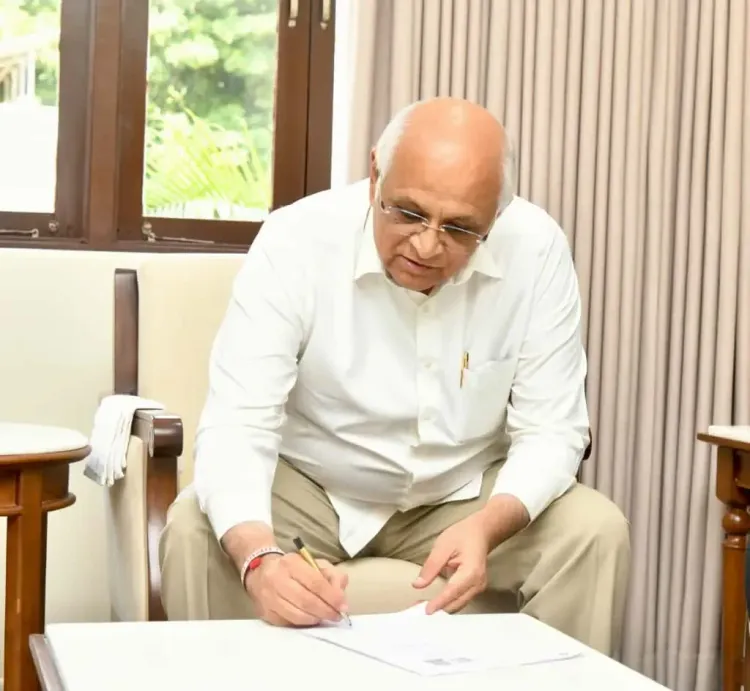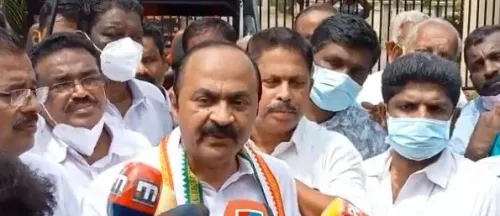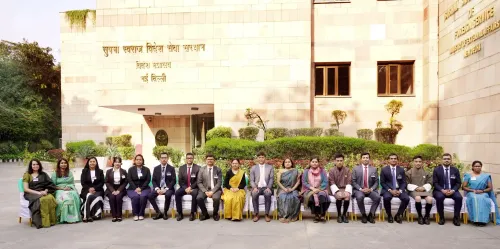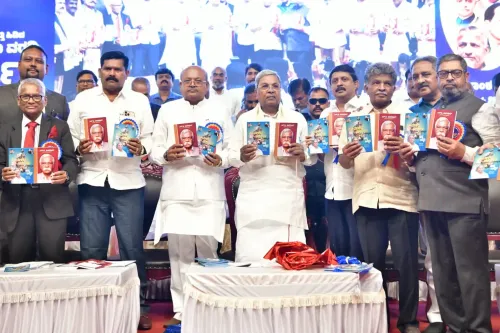Has the Gujarat Cabinet Approved Extended Electricity Supply for Farmers?

Synopsis
Key Takeaways
- The Gujarat Cabinet has approved longer electricity supply hours for farmers.
- Farmers in 13 talukas will receive 10 hours of power daily.
- Farmers in Garbada and Dahod will benefit from 12 hours of electricity.
- This decision impacts over 58,000 farmers in key regions.
- The initiative supports uninterrupted agricultural activities during the Rabi season.
Gandhinagar, Nov 19 (NationPress) The Gujarat cabinet has officially sanctioned longer electricity supply hours for farmers in critical districts to aid in the cultivation of the Rabi season. Deputy Chief Minister Harsh Sanghavi revealed that starting Thursday, farmers in 13 talukas across Ahmedabad, Mehsana, Patan, Surendranagar, Vav–Tharad, and Morbi districts will benefit from 10 hours of electricity, an increase from the previous eight hours.
Moreover, farmers situated in Garbada and Dahod talukas of Dahod district will now enjoy a daily electricity supply of 12 hours. The state government anticipates that this change will positively impact over 58,000 farmers.
State Home Minister Sanghavi emphasized that this initiative underscores the Cabinet's dedication to facilitating uninterrupted agricultural operations during the vital Rabi sowing period.
This decision followed a Cabinet meeting led by Chief Minister Bhupendra Patel in Gandhinagar.
In a related development, the Chief Minister also assessed the state of roads across various districts during the same Cabinet meeting.
Last week, Patel instructed all guardian ministers to hold district-level review meetings with officials and compile detailed reports on road conditions following field inspections.
Deputy Chief Minister and government spokesperson Harsh Sanghavi stated that all guardian ministers have completed their on-site evaluations and review meetings in their respective areas.
The Chief Minister monitored the progress of this initiative during Wednesday's assembly and directed that the final consolidated reports be submitted by November 30.
Officials are tasked with delivering district-wise, verified reports by the end of this week to enable the government to prioritize road maintenance and infrastructure enhancements prior to upcoming seasonal and administrative demands.
Gujarat is home to approximately 49 lakh farmers, with many cultivating a varied selection of food grains, cash crops, and horticultural products well-suited to the state’s semi-arid climate.
Major crops produced include cotton, groundnut, castor, wheat, bajra, maize, and rice. The state also stands out as a leading producer of fruits and spices such as mango, banana, onion, tomato, and cumin.
These farming trends significantly contribute to Gujarat's robust agricultural economy, supporting both domestic markets and export-oriented industries.









